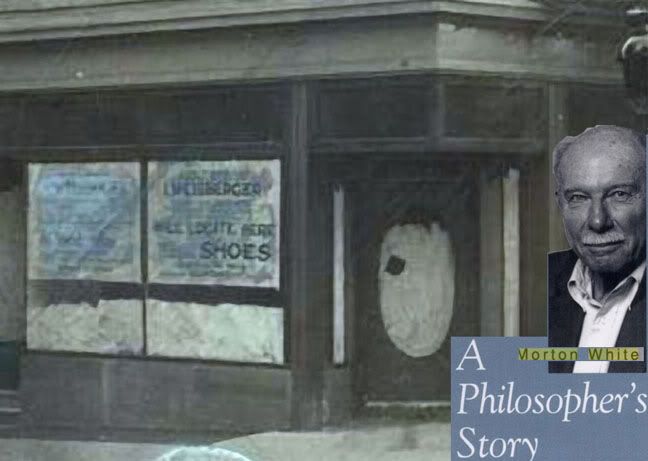
Cliff didn't know it but he broke the window of the shoe store that belonged to Morton white's father. We posted about Morton before, a most brilliant son of the LES who even knew Mazie from the Bowery
About Morton White, who is still alive in his 90's. I'm trying to contact him to collect any reward due
Morton White (born 1917) is an American philosopher and historian of ideas. He is both a central figure in the philosophical movement of Holistic Pragmatism and a noted historian of American philosophical thought. He was a professor in the Department of Philosophy at Harvard from 1953 to 1970, and since then has been at the Institute for Advanced Study in Princeton, NJ where he is currently professor emeritus.
White was born in the Lower East Side of New York City. White attended City College of New York as an undergraduate before doing his postgraduate studies at Columbia University, where he completed his Ph.D. in 1942 and was influenced by John Dewey. In 1949 he published Social Thought in America, a critical history of liberal social philosophy as represented by the ideas of Dewey, Oliver Wendell Holmes, Jr., Thorstein Veblen, Charles Beard, and James Harvey Robinson. When the book was republished in 1957 he added a preface in which he softened some of his criticisms, and he added an epilogue in which he attacked the religious liberalism of Reinhold Niebuhr and the conservatism of Walter Lippmann. "Time and recent events," he wrote, "have brought the liberal outlook under a very different kind of attack- an attack with which I have no sympathy- and I fear that my own critical observations might wrongly be associated with arguments, positions, and purposes quite foreign to my own." In his 1956 work, Toward Reunion in Philosophy, White attempted to reconcile the pragmatic and analytic traditions in American philosophy.
At Harvard, White was a colleague of Willard Van Orman Quine, and the philosophical views of the two are closely related, particularly in their rejection of a sharp distinction between a priori and empirical statements. But White rejects Quine's view that "Philosophy of science is philosophy enough." Using the framework of Holistic Pragmatism, White argues that philosophical inquiry can just as well be applied to cultural institutions beyond science, such as law and art.

No comments:
Post a Comment